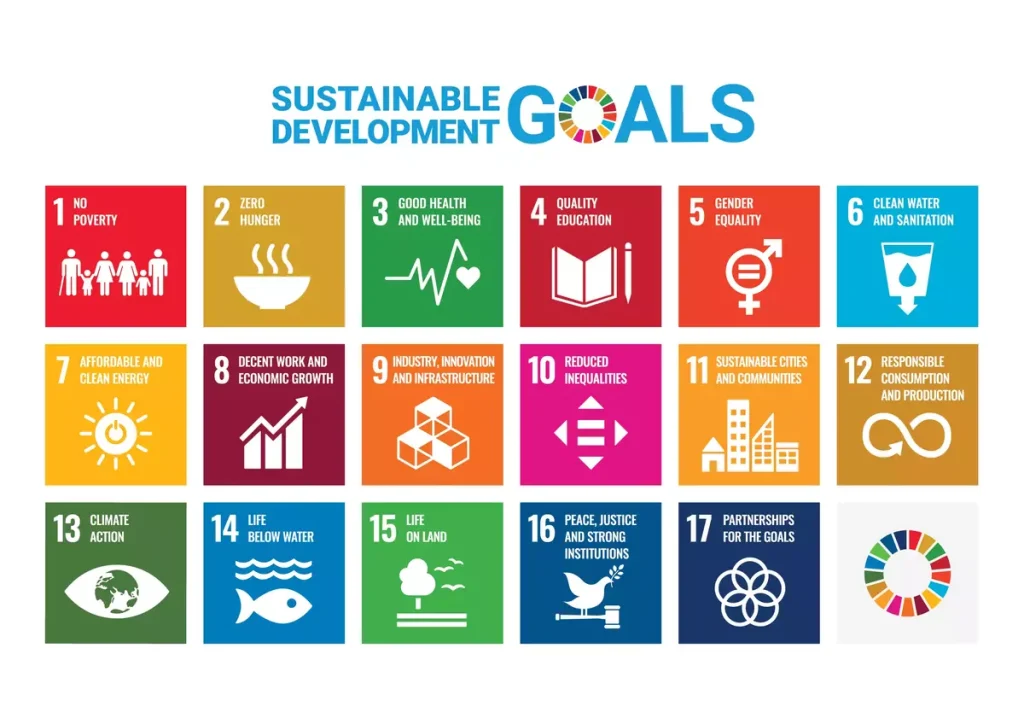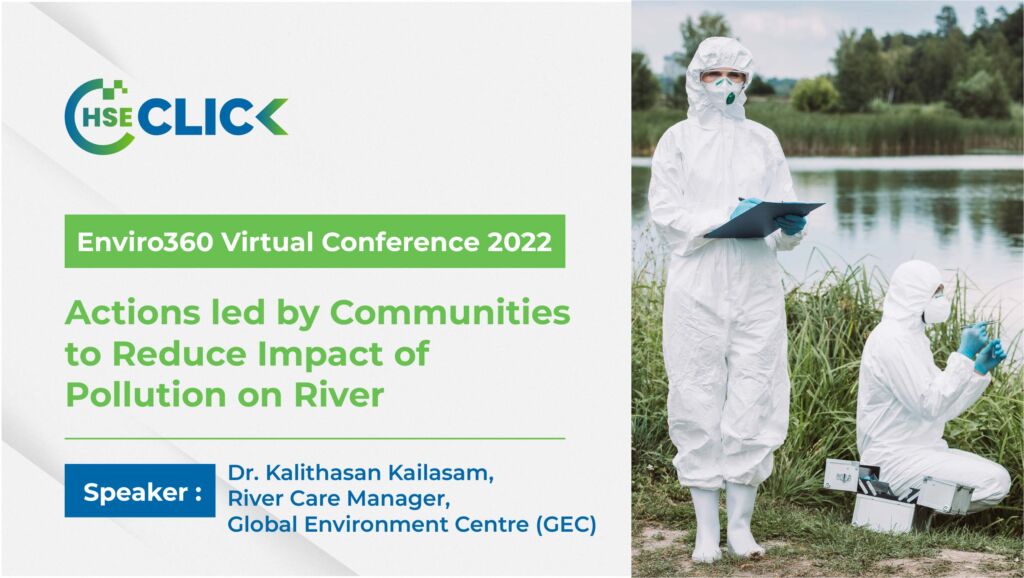Sustainable Development Goals And How OSHE Practitioners Play Our Part

What Are The Sustainable Development Goals in Malaysia And How Can OSHE Practitioners Play Our Part?

According to the United Nations Malaysia website, The Sustainable Development Goals are a global call to action to end poverty, protect the earth’s environment and climate, and ensure that people everywhere can enjoy peace and prosperity. In Malaysia, the United Nations Country Team (UNCT) comprises 21 agencies, led by the UN Resident Coordinator (RC), to deliver greater impact together on the 2030 Agenda and SDGs in line with national priorities, plans and needs.
These are the goals the UN is working on in Malaysia:
1. No Poverty:
End poverty in all its forms everywhere.
2. Zero Hunger:
End hunger, achieve food security, and promote sustainable agriculture.
3. Good Health and Well-being:
Ensure healthy lives and promote well-being for all at all ages.
4. Quality Education:
Ensure inclusive and equitable quality education and promote lifelong learning opportunities for all.
5. Gender Equality:
Achieve gender equality and empower all women and girls.
6. Clean Water and Sanitation:
Ensure availability and sustainable management of water and sanitation for all.
7. Affordable and Clean Energy:
Ensure access to affordable, reliable, sustainable, and modern energy for all.
8. Decent Work and Economic Growth:
Promote sustained, inclusive, and sustainable economic growth, full and productive employment, and decent work for all.
9. Industry, Innovation, and Infrastructure:
Build resilient infrastructure, promote inclusive and sustainable industrialization, and foster innovation.
10. Reduced Inequalities:
Reduce inequality within and among countries.
11. Sustainable Cities and Communities:
Make cities and human settlements inclusive, safe, resilient, and sustainable.
12. Responsible Consumption and Production:
Ensure sustainable consumption and production patterns.
13. Climate Action:
Take urgent action to combat climate change and its impacts.
14. Life Below Water:
Conserve and sustainably use the oceans, seas, and marine resources for sustainable development.
15. Life on Land:
Protect, restore, and promote sustainable use of terrestrial ecosystems, sustainably manage forests, combat desertification, halt and reverse land degradation, and halt biodiversity loss.
16. Peace, Justice, and Strong Institutions:
Promote peaceful and inclusive societies for sustainable development, provide access to justice for all, and build effective, accountable, and inclusive institutions at all levels.
17. Partnerships for the Goals:
Strengthen the means of implementation and revitalize the global partnership for sustainable development.
Malaysian occupational health, safety, and environment (OSHE) practitioners play a significant role in advancing the United Nations’ Sustainable Development Goals (SDGs) in Malaysia through their expertise and actions. The International Labour Organization has also highlighted the relevant SDG targets related to health and safety at the workplace. Here’s how OSHE practitioners contribute to the SDGs:
How Does It Relate To OSHE Practitioners?
These goals represent a comprehensive framework addressing key challenges faced by humanity and the planet, aiming to achieve a sustainable and equitable future for all.
Goal 3: Good Health and Well-being:
OSHE practitioners are instrumental in promoting good health and well-being in the workplace. They develop and implement health and safety programs, conduct risk assessments, and provide guidance on preventive measures to reduce work-related accidents, injuries, and illnesses. By ensuring safe working conditions and supporting workers’ health, OSHE practitioners contribute to this goal.


Goal 8: Decent Work and Economic Growth:
OSHE practitioners contribute to creating decent work environments by enforcing safety regulations, conducting safety audits, and promoting best practices. They collaborate with employers and employees to identify and mitigate occupational hazards, improve working conditions, and enhance productivity. By fostering safe and inclusive workplaces, OSHE practitioners support decent work and economic growth.
Goal 11: Sustainable Cities and Communities:
OSHE practitioners are instrumental in promoting good health and well-being in the workplace. They develop and implement health and safety programs, conduct risk assessments, and provide guidance on preventive measures to reduce work-related accidents, injuries, and illnesses. By ensuring safe working conditions and supporting workers’ health, OSHE practitioners contribute to this goal.


Goal 12: Responsible Consumption and Production:
OSHE practitioners promote responsible consumption and production practices in workplaces. They encourage the efficient use of resources, waste reduction, and environmentally friendly processes. By integrating sustainability principles into daily operations, OSHE practitioners contribute to achieving responsible consumption and production patterns. According to the Sustainable Development Goals (SDG) Indicators, Malaysia 2021 published by the Ministry of Economy Malaysia, there has already been an increase in the amount of scheduled waste managed and the national recycling rate.
Goal 13: Climate Action:
OSHE practitioners contribute to climate action by incorporating environmental considerations into their work. They identify and address workplace emissions, promote energy efficiency, and advocate for sustainable transportation and waste management practices. OSHE practitioners raise awareness about the impact of climate change on occupational health and safety and support efforts to reduce carbon footprints.


Goal 16: Peace, Justice, and Strong Institutions:
OSHE practitioners contribute to building strong institutions by ensuring compliance with occupational health and safety regulations and standards. They help organizations develop policies, procedures, and training programs that promote worker rights, equality, and accountability. OSHE practitioners also play a role in investigating workplace incidents, supporting fair and just systems.
OSHE practitioners, through their expertise in occupational health, safety, and environment, contribute to the overall achievement of the SDGs by creating safe and healthy work environments, promoting sustainable practices, protecting workers’ rights, and strengthening institutions. Their knowledge and actions drive progress towards a more sustainable and inclusive future.
References:
1. United Nations Sustainable Development Goals website
https://www.un.org/sustainabledevelopment/
2. Sustainable Development Goals report (2022)
https://unstats.un.org/sdgs/report/2022/The-Sustainable-Development-Goals-Report-2022.pdf
3. United Nations Malaysia
https://malaysia.un.org/en/sdgs
4. International Labour Organization: SDG & OSH
https://www.ilo.org/global/topics/dw4sd/themes/osh/WCMS_558571/lang–en/index.htm
5. SDG Malaysia 2021 summary by the Ministry of Economy Malaysia
https://www.epu.gov.my/sites/default/files/2022-12/Indikator_SDG_Malaysia_2021_Executive_Summary.pdf


